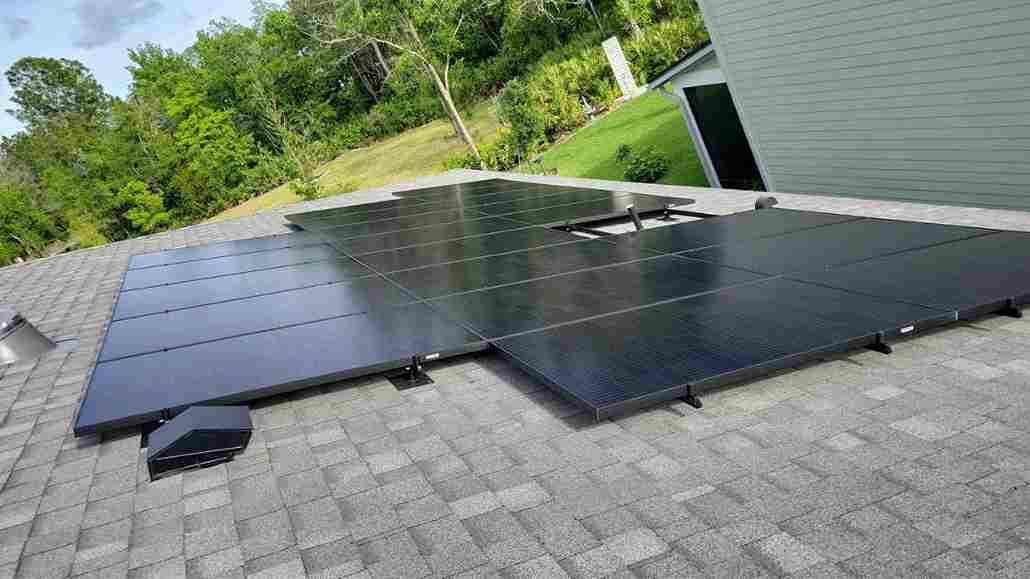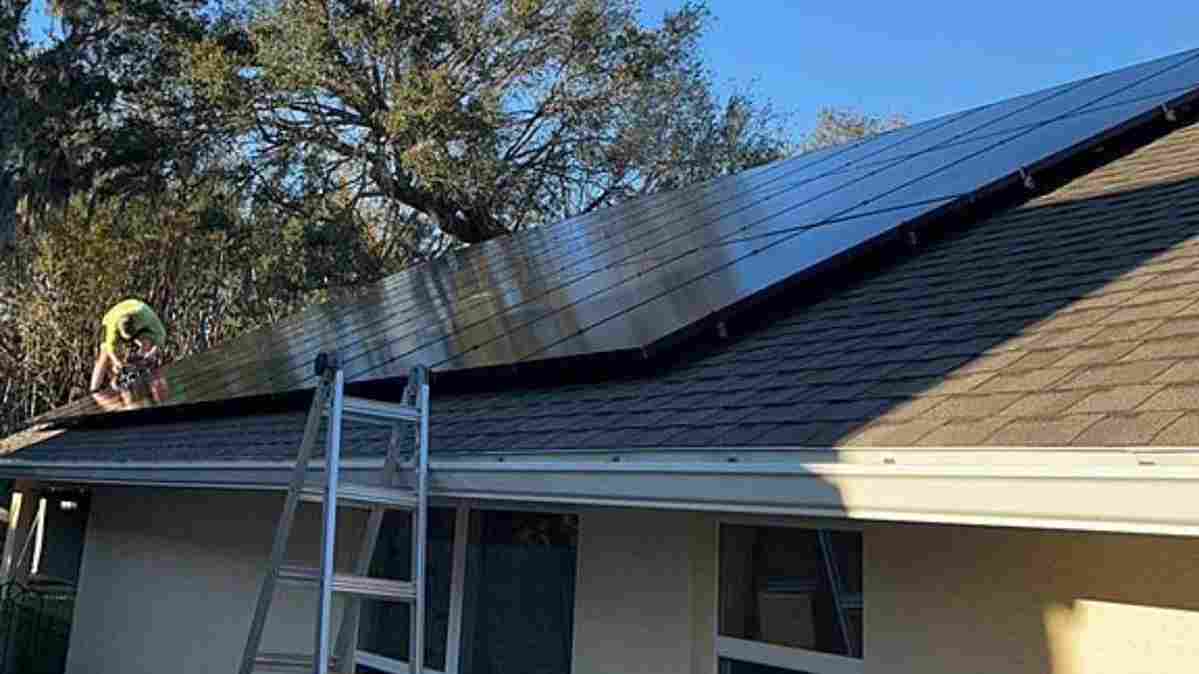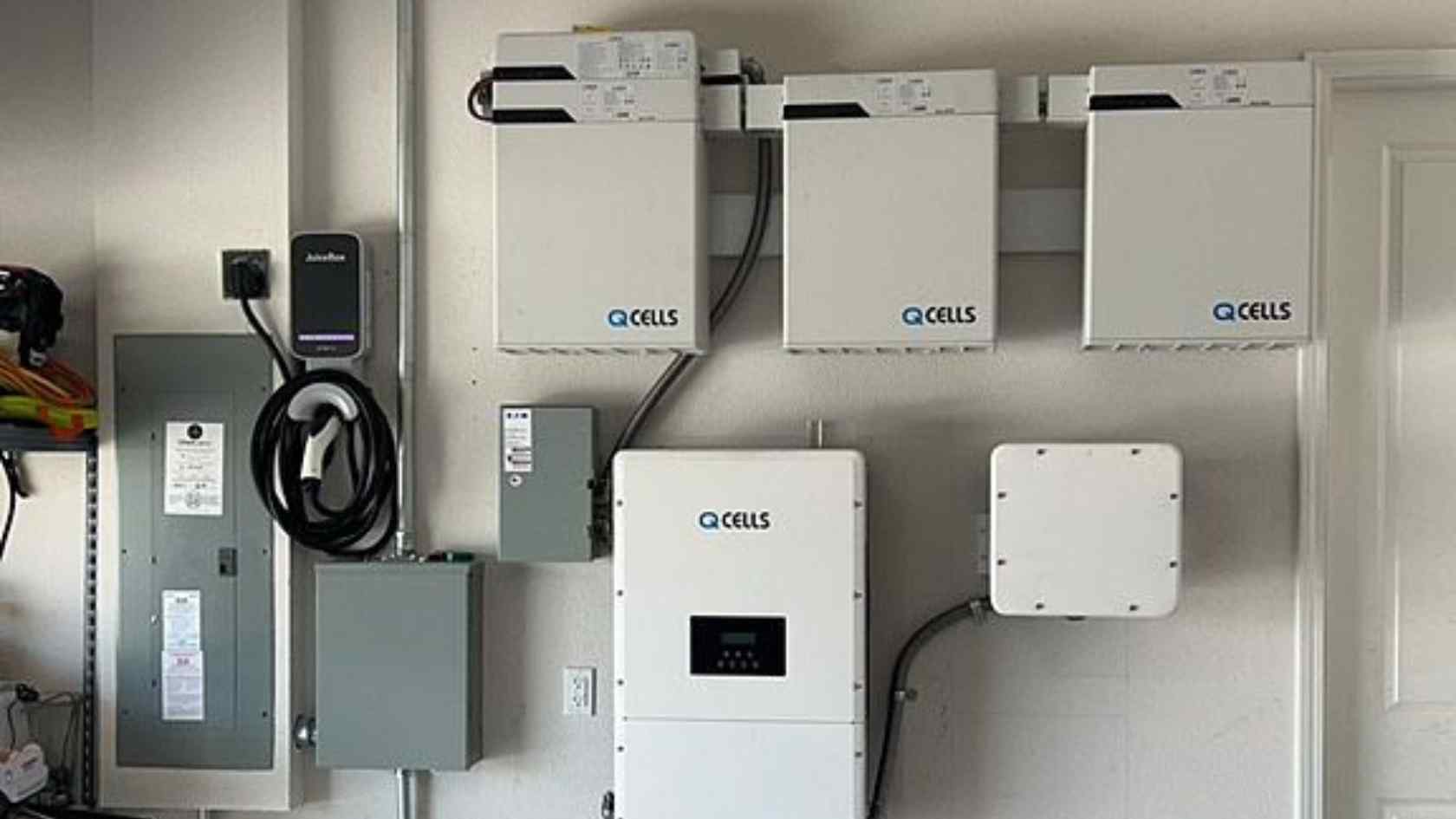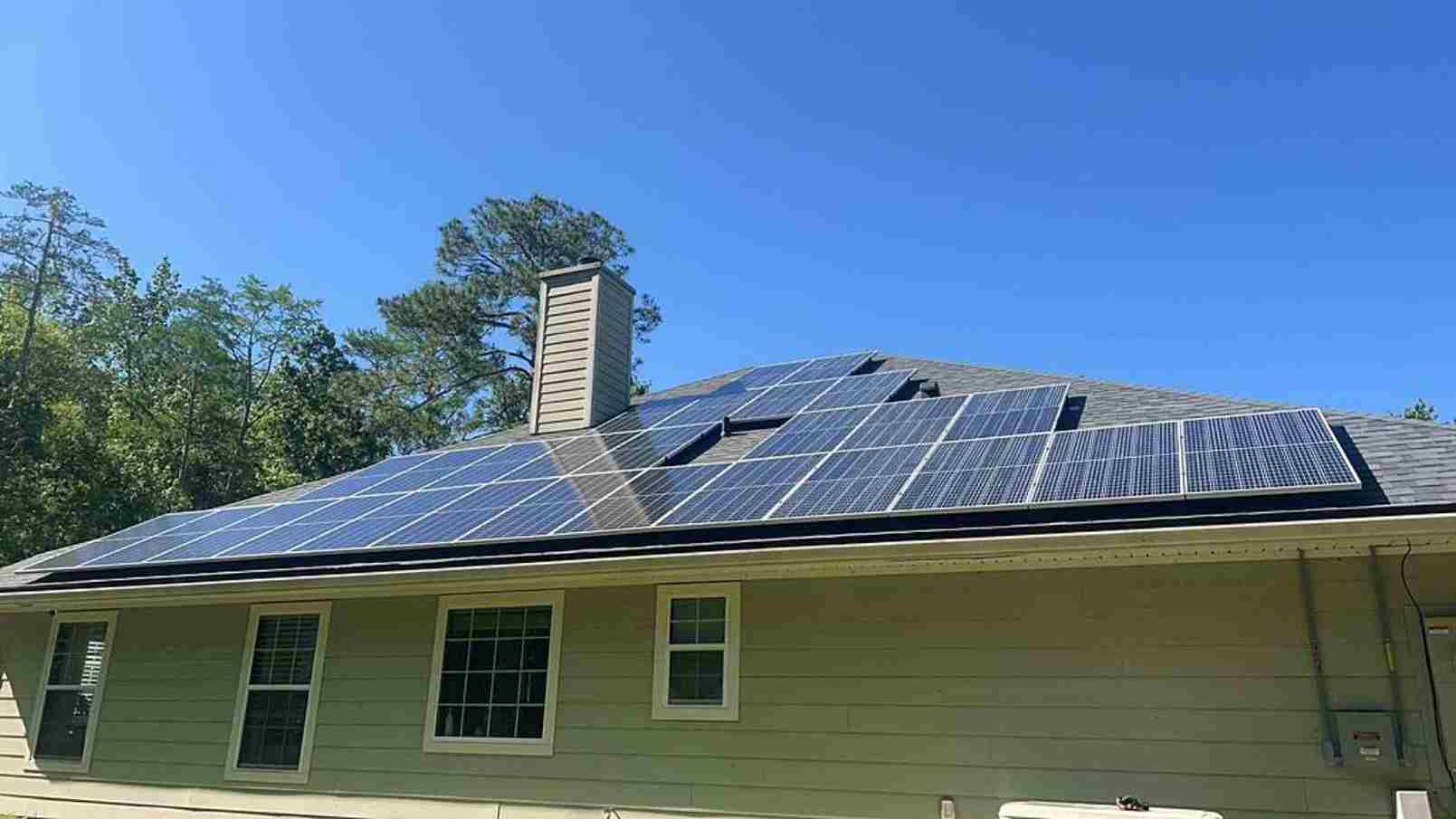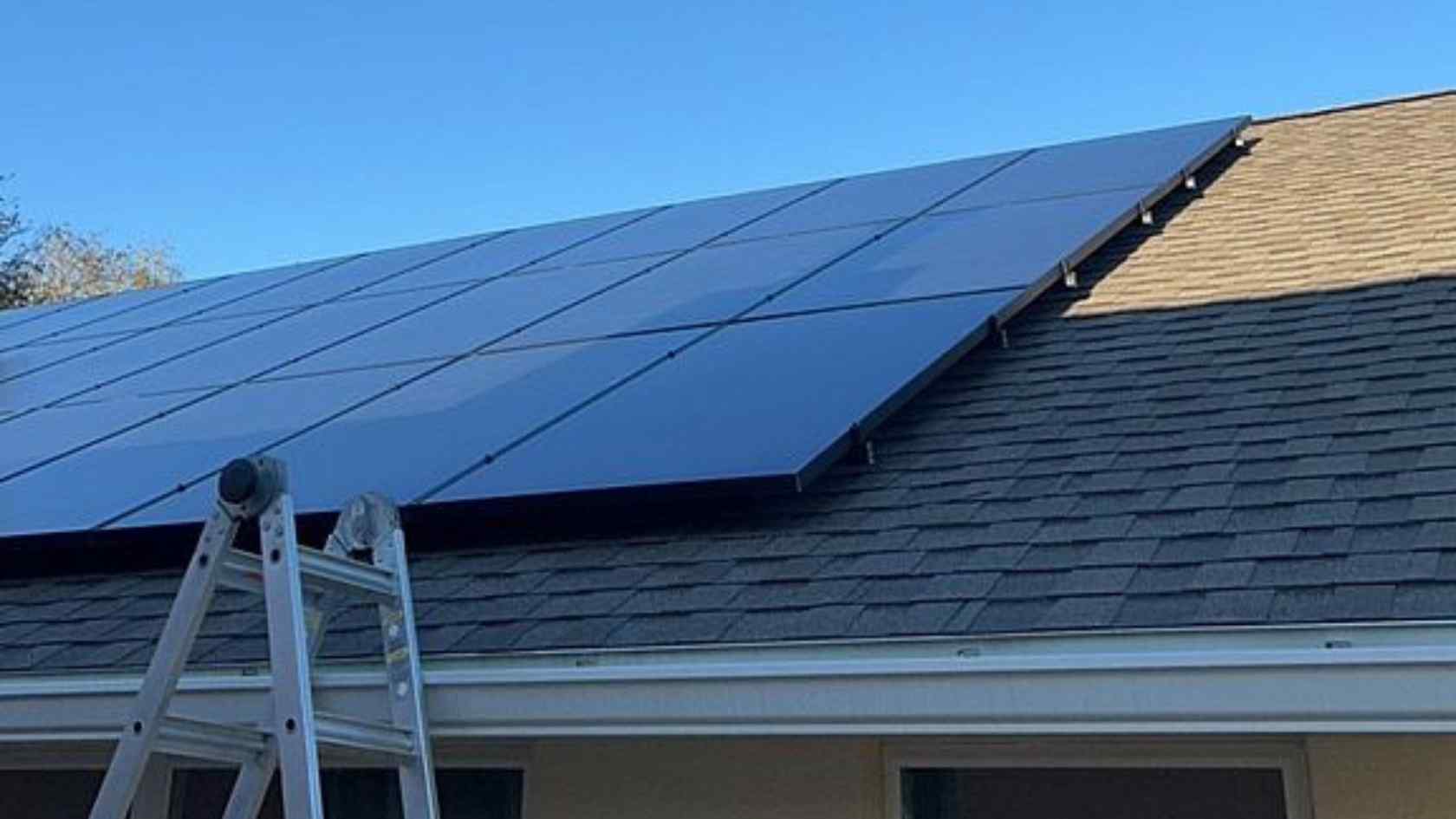Meeting with several companies and comparing solar panel quotes is an action every Florida homeowner should take before purchasing home solar panels. Not only will it help ensure you get the best price on solar panels, but comparing solar panel quotes will also help you understand the range of products and services available to you.
For example, some solar companies only use micro-inverters, while others offer what’s known as a string system. Some contractors may only carry one brand of solar panels, while others carry multiple.
Before comparing solar panel quotes, make sure you understand what to look for! Often homeowners stop at the contract price, and while that’s important, it may not be apples to apples in terms of a comparison.
Below we’ve outlined the 5 steps Florida should take when comparing solar panels and included tips on reducing solar panel costs. Click below to download our free checklist and fill out the information as you go along!
Click to download: Florida Solar Quote Comparison Checklist
Comparing Solar Panel Quotes – Online Guide Contents
- Step 1 – Solar Components
- Step 2 – System Size & Output
- Step 3 – Hardware
- Step 4 – Installation Process
- Step 5 – Solar Warranties
Step 1: Know All Components Of A Home Solar System
Before comparing quotes, it’s important to understand the different components of a solar panel system. As mentioned above, some solar energy companies only focus on one type of installation (string or micro-inverters) or only carry one brand of products. Knowing the components of a system will help you when it comes time to look at and compare written estimates. Here are a few quick definitions:
Solar Panels – Most Florida homeowners will need a minimum of 10-15 panels spending on the home size
Inverter(s) – The device converts the energy from solar panels to a usable source of power for your home.
Charge Controller – This device manages the flow of electricity from solar panels to a battery.
Electrical Panel – This houses your main breaker box and household electrical connections.
Smart Meter – This device monitors electrical flow to and from the grid.
Solar Mounting System – What allows solar panels to be permanently attached to the roof of your home.
Step 2: Compare the Size and Output of Solar Panels
One of the key factors in comparing solar panel quotes is the size and output of the panels. Solar panels are rated in terms of their maximum power output, which is measured in watts. The more watts a panel can produce, the more energy it can generate for your home.
In general, there are two options for home solar panels: monocrystalline and polycrystalline.
Each type varies in terms of price and efficiency. Most homeowners choose monocrystalline solar panels because they are more efficient and able to generate more power. Polycrystalline solar panels are less expensive but produce less power overall, which means homeowners can expect a longer payback period to recoup the investment. When comparing solar panel quotes, make sure to note the solar panel type. If you see a huge difference in prices, it could be because solar panels are different types.
In addition to the type of solar panel, you should also review the system size and total output that you are being quoted for. The lowest price does not mean you are getting the best deal!
Here’s what to look for:
System Size
- What is the total wattage of the system?
- Take that number and divide by the system price to get a cost/watt total
- Compare the cost/watt on each solar quote you get
System Output and Offset
- How many kWh will the system produce each year?
- How much will solar energy offset my current electric bill?
This information will not only help you compare costs but also help you calculate the return on investment of solar panels.
Step 3: Evaluate Solar Installation Hardware
There are several components to solar panel installation hardware: inverters, racking systems, and several devices that monitor energy flow. When comparing solar panel quotes, make sure to note the specifics of what each company is offering.
Solar Inverters
An inverter is a device that converts DC power generated by the panels into AC power for use in your home. Without them, you won’t be able to use energy generated from your solar panels!
Florida homeowners can choose between a string system (all solar panels are strung together to a single inverter) or one that uses microinverters (each solar panel has its own inverter). Systems with microinverters require more components and hardware and are more expensive. It’s important to evaluate the inverter technology used in each quote, as different types of inverters can impact the efficiency and performance of your solar panel system.
Solar Racking System
This is one of the most important components of a home solar system! Racking brackets and mounts must pass wind rating tests and follow specific safety guidelines. Here are a few things to consider:
- Is the solar racking system approved for use in areas with 165+ or higher winds?
- Is the racking equipment rust and/or water-resistant?
- How many holes will need to be drilled to mount the solar brackets?
- What type of flashing will be used to prevent roof leaks?
- Will solar wires be run through the attic or underneath the panels?
- What is the warranty (if any) on the mourning equipment?
Learn more about the process of installing rooftop solar panels in our free online guide.
Additional Solar Installation Components
Charge Controller – This device manages the flow of electricity from solar panels to a battery. If you are remaining connected to the energy grid through net metering, you will not see this on your written estimate.
Electrical Panel – To power your home with solar panels, your home’s main breaker needs to be rated for at least 200 amps. Larger homes will require a larger breaker for solar which may mean modifying the electrical panel. Smaller homes may be able to utilize solar without any upgrades.
Smart Meter – Home solar systems with net metering will require a smart meter to manage the electrical flow to and from the grid. Often they are supplied by each utility company. Some solar energy contractors will cover this fee for the homeowner, some won’t.
Step 4: Ask About The Installation Process
Another important factor to consider when comparing solar panel quotes is the installation process. In Florida, it can take anywhere from 60-90 days for just the permits from the city and utility company to be approved. You’ll want to make sure you are working with a solar energy company that will have a dedicated and in-house project manager to oversee this process.
In addition, make sure each quote you are looking at includes a detailed plan for installation day, as well as any additional fees or charges that may be involved. Additional charges could include fees to ship materials, upgrades to electrical panels, and smart meters required by the utility company.
Step 5: Review Solar Panel Warranties
Finally, it’s important to review the warranty options included in each solar panel quote. Make note: there may be more than one! Often solar panels, inverters, and racking systems all have separate warranty coverage amounts and lengths of time.
In addition, ask about an installation warranty through the solar installer. This will cover any problem that arises from improper installation. Most companies offer a one-year installation warranty but the longer, the better!
Key Takeaways About Comparing Solar Panel Quotes In Florida
Getting the best home energy system starts with finding the best local solar energy company. Getting written estimates from several contractors and then comparing the solar panel quotes is the best way to do that!
Click to download our Florida Solar Quote Comparison Checklist
Solar panels are a big investment and can save you a significant amount of money in the long run. When reviewing solar panel quotes, make sure to look at all of your options, not just the price, to get the best deal and the best home energy system.

